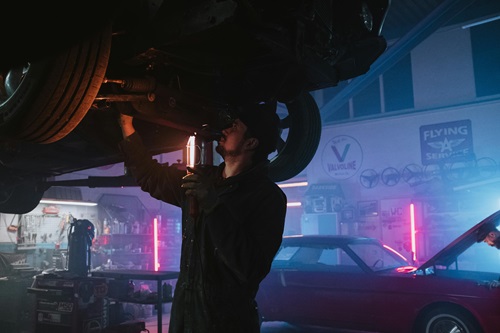
We understand that being involved in a car accident can be a stressful and overwhelming experience, especially when it comes to dealing with repairs for your vehicle. This article hopes to provide you with clear and concise information on how to navigate this process, so you can get back on the road as smoothly and quickly as possible. Whether it’s your first time going through a car repair after an accident or you’re looking for helpful tips, we’ve got you covered. Now let’s get started!
Understanding the Repair Process
After an accident, your vehicle will most likely require repairs in order to be safe and functional again. The first step is to get your car assessed by a professional mechanic or body shop. They will provide you with an estimate of the damages and necessary repairs, and this will give you an idea of how much the whole process may cost.
Next, you’ll need to work with your insurance company to file a claim for the damages. This can often involve providing photos of the damage and any relevant documentation. Your insurance company will then determine if they cover the repairs and how much they will contribute towards them. Once the insurance claim is approved, you can then move forward with scheduling and completing the repairs. Depending on the extent of the damages, this may involve replacing parts, fixing dents or scratches, and repainting areas of your vehicle.
Choosing a Repair Shop
Be sure to choose a reputable repair shop that you trust for your car repairs after an accident, such as Letcher Bros. Your insurance company may have preferred shops that they work with, but you also have the right to choose any repair shop of your choice. Be sure to do your research and read reviews from previous customers before making a decision. Make sure to ask about warranties and guarantees for the repairs. A good repair shop will offer a warranty to cover any issues that may arise with the repairs in the future.
Staying Organized
During the repair process, it’s important to keep all documentation related to your accident and repairs organized. This includes estimates, insurance claims, receipts, and any other relevant paperwork. This will come in handy if you encounter any issues or need to refer back to information later on.
It’s also a good idea to keep these documents safe and easily accessible. Consider creating a folder specifically for all car repair-related paperwork, or keeping them in a designated file on your computer. This will save you time and stress in the future if you need to refer back to any of these documents.
Communicate With Your Repair Shop
Clear communication with your chosen repair shop is crucial throughout the process. Make sure to ask questions and get updates on the progress of your repairs. If anything changes or additional damages are discovered during the repair process, make sure to communicate with both your repair shop and insurance company.
If you find yourself feeling confused or overwhelmed during the repair process, don’t hesitate to reach out for help. You can contact your insurance company for clarification on their coverage and any steps that need to be taken. It’s also beneficial to communicate openly with your chosen repair shop and ask for explanations or updates if needed. Remember, it’s always better to ask questions and seek guidance rather than feeling lost in the process. Consider seeking support from friends or family members who have gone through a similar experience, as they can provide helpful insights and tips.
What to Do in the Meantime
While your car is being repaired, you may need to find alternative transportation. If you have rental coverage through your insurance, this can help cover the cost of a rental car. Alternatively, you may be able to borrow a car from a friend or family member. Be sure to check with your insurance company first before making any arrangements.
If you do end up using a rental or borrowed car while yours is being repaired, be sure to take extra care of the vehicle. Make sure to follow all traffic laws and avoid any risky driving behaviors. You should also discuss any potential restrictions or guidelines with the owner of the car, such as mileage limits or rules for pets in the car.
Final Inspection
Once your vehicle has been repaired, don’t forget to do a thorough final inspection before taking it back on the road. This can include checking for any missed damages or issues with the repairs. If you notice any problems, don’t hesitate to bring them up with your repair shop for resolution.
The length of the repair process can vary depending on the extent of damages and availability of parts. In general, minor repairs may take a few days to a week, while major repairs may take several weeks or even months. Try to stay patient and communicate with your repair shop if you have any concerns about the timeline.
Dealing with car repairs after an accident may seem daunting, but by understanding the process and staying organized and communicative, you can navigate it successfully. Remember to choose a reputable repair shop, stay on top of documentation and communication, and thoroughly inspect your vehicle before hitting the road again. We hope this article has helped you feel more empowered to handle car repairs after an accident. Drive safe out there!



